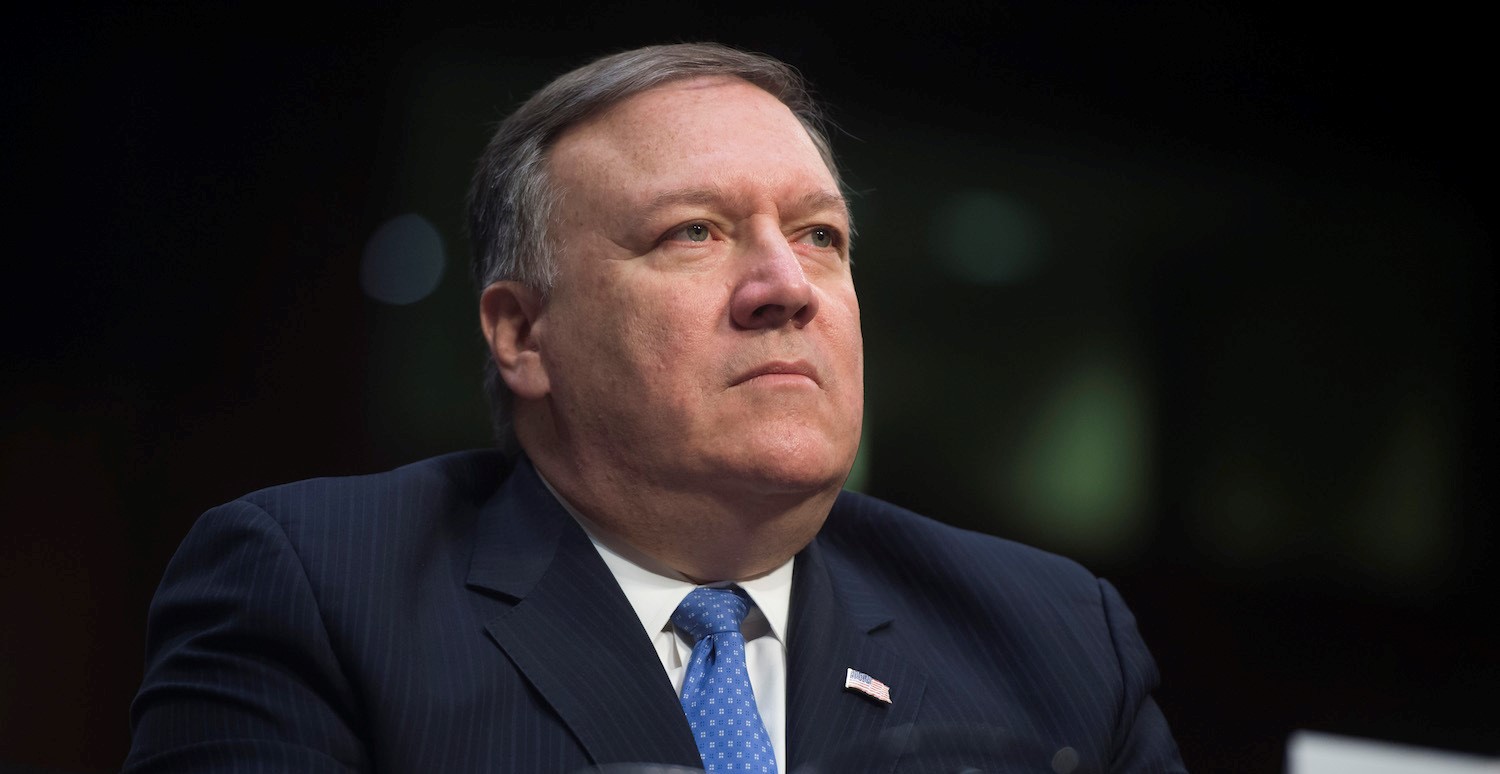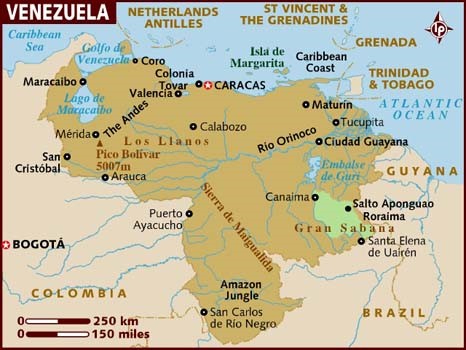Pompeo promises action against Venezuela
September 23, 2018 | Expert Insights

US Secretary of State Mike Pompeo vows to take a "series of actions" against the government of Nicolas Maduro in the “best interest” of Venezuelans.
Background
The Bolivarian Republic of Venezuela is located in northwest South America. In 2017, the UN estimated that the country is home to over 31 million people. The country stretches across over 900,000 square kilometres. It is bordered by the Caribbean Sea in the north, and Columbia, Guyana, and Brazil in the west, east, and south respectively. Venezuela was colonised by Spain in 1522 and became the first Spanish territory to declare independence from the Empire in 1811.
Despite having the world’s largest oil deposits, many Venezuelans live in abject poverty. The former President Hugo Chavez was in office from 1999 to 2013. During that period, billions of dollars were spent on generous social programs. However, since his successor Nicolas Maduro took office, there has been a rise in inflation and a shortage of basic goods. A drop in oil prices has added to the administration’s problems.
The UN says 1.6 million Venezuelans since 2015 have fled the economic meltdown in the country, which has been hit by shortages of basic necessities such as food and medicine. The United States has denounced the poor human rights record of the Maduro government and has also criticised the fiscal mismanagement of Maduro’s predecessor. The burgeoning refugee crisis caused by the near-total collapse of the Venezuelan economy has prompted the US to sanction high-ranking Venezuelan officials for their inaction.

Read more of our extensive on the crisis on Venezuela here, here and here
Analysis
Refusing to specify the details of Washington’s plan, Pompeo noted that the US is “determined to ensure that the Venezuelan people get their say.”
“I think you’ll see in the coming days a series of actions that continue to increase the pressure level against the Venezuelan leadership folks who are working directly against the best interest of the Venezuelan people,” Pompeo said.
The Venezuelan leadership has long accused the US of trying to topple the government of Nicholas Maduro. While introducing a number of sanctions against the country’s politicians and business elite, the US continues to insist it pursues a “peaceful return to democracy” in Venezuela – although Donald Trump had previously said that his administration is “not going to rule out military option.”
Earlier this month the New York Times reported that US officials had secretly met members of the opposition to discuss action plans to overthrow Maduro. Venezuela’s foreign minister, Jorge Arreaza, called it yet another proof of American intervention plans to “help [the] military conspirators against Venezuela.” The US National Security Council spokesman Garrett Marquis, however, emphasized that Trump is seeking “a peaceful, orderly return to democracy” in Venezuela, without confirming or denying that such secret meetings took place.
Venezuela has recently seen a wave of protests against the government, amid hyperinflation in the country and the drop in global oil prices, which is the main export for the Latin American state. Weary of the troubles in the economy, Venezuelans have been fleeing to neighbouring countries in droves due to shortages of food and water, as well as soaring unemployment at home.
Counterpoint
The US has always been critical of Venezuelan social policies and their influence on the OPEC. US sanctions on Caracas have been a commonplace scenario for the State Department. The refugee crisis gives Washington the perfect opportunity to impose a crippling economic blockade to force a change in leadership and possibly, even the political system of the country.
The State Department can only issue statements regarding prospective sanctions. Any news of “action” from the state department will involve the Treasury Department, the DHS as well as the White House. Therefore, a unilateral State Department action plan is highly unlikely.
Assessment
Our assessment is that the threat of action against Venezuela also comes days after Luis Almagro. Secretary-General of the Organization of American States (OA) publicly endorsed the possibility of military intervention in the country. We believe that Trump administration has recently met members of the Venezuelans armed forces to discuss a coup.








Comments